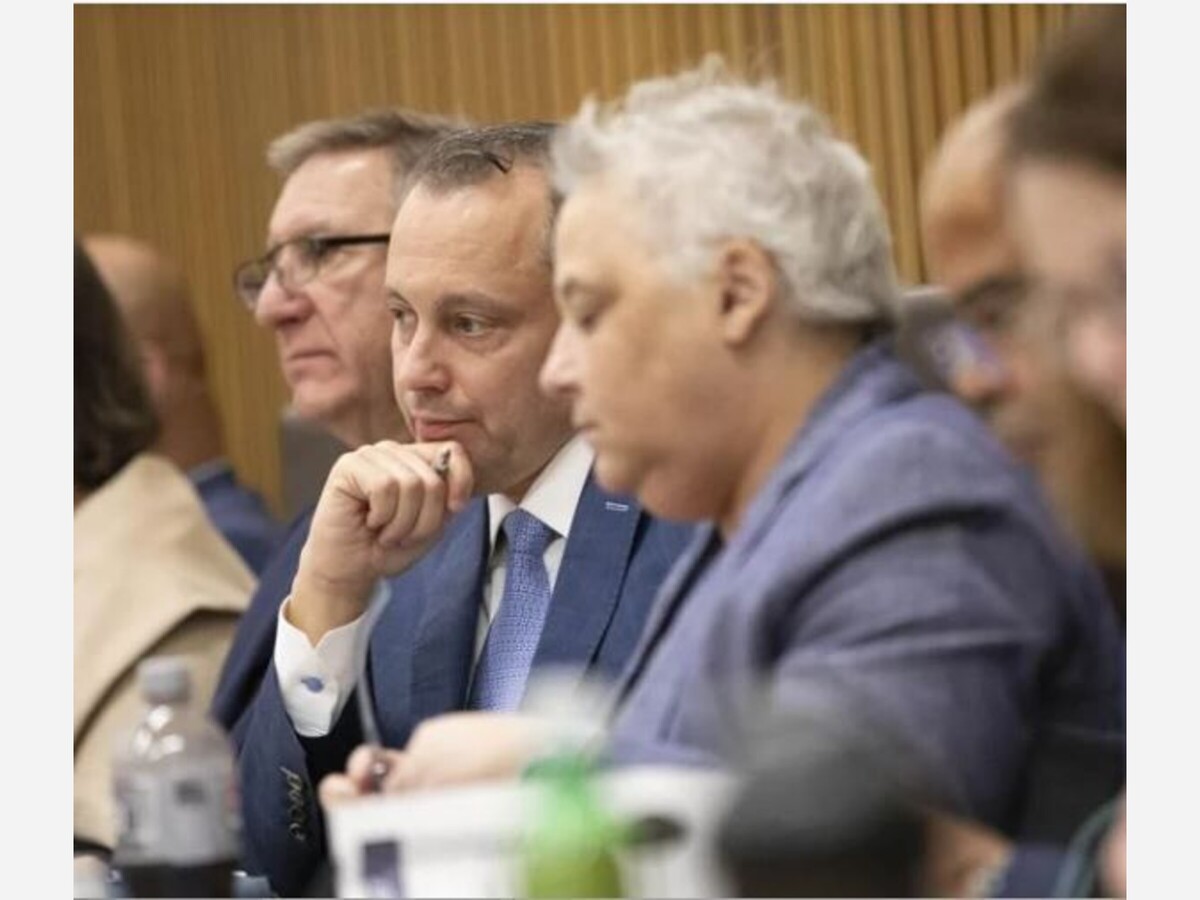Image

Lawmakers including House budget chief Aaron Michlewitz (center) listen to Gov. Maura Healey's presentation about her fiscal year 2026 budget bill on March 6, 2025.
The House budget chief declined, earlier this week, to rule out tax increases as his team prepares to roll out a new annual state spending plan in an increasingly volatile environment.
A week before releasing a redraft of Gov. Maura Healey's $62 billion fiscal 2026 budget, House Ways and Means Chairman Aaron Michlewitz initially dodged the tax question but then said taxes remain on the table.
"You'll hear more about that in the coming days," Michlewitz said about tax code changes in the budget, noting that lawmakers are still finishing their review of Healey's proposal.
When a reporter pressed on whether tax options are still in the mix, Michlewitz replied, "Certainly everything is still on the table for conversation."
"We're trying to build a budget that is fiscally sound and also allows us to be able to pivot if necessary based off a lot of these challenges that we're seeing from the federal government, from a financial standpoint a lot of uncertainty," he said. "And then certainly with this tariff situation, top down with the affordability crisis that we're facing, we certainly are taking that all into consideration."
While House Democrats are keeping their budget plans mostly under wraps ahead of the proposal's rollout next week, one economic expert is already sounding the alarm and calling for a major pivot from Beacon Hill.
Evan Horowitz, executive director of the Center for State Policy Analysis at Tufts University, said Monday that state budget-writers should immediately mark down their fiscal 2026 tax revenue estimate by $1 billion.
"It's not just the turmoil in the markets, although that's obviously a concern. It's what that turmoil reflects, which is a growing risk of recession," Horowitz said in an interview, noting that Goldman Sachs on Monday raised its projected odds of a recession.
Horowitz called the recession risks "almost entirely self-inflicted from the tariffs." Any such downturn would make the state budgeting process trickier, he said, because lower wages and sales contribute less tax revenue.
And with President Donald Trump's tariffs fueling a stock market decline, Horowitz cautioned that one of the better-performing levies in Massachusetts -- the surtax on wealthy households -- could begin to slow, too.
"Something like a third of the income of people who earn over a million dollars comes from capital gains. So with the market down this much, there's every chance that capital gains collections for FY26 will be decimated, and that has a direct path through the ability of the state to generate sufficient revenue for its programs," he said.
Beacon Hill took a conservative approach to surtax collections, leaving a surplus of about $1.3 billion officials are now moving to spend on one-time education and transportation investments.
Michlewitz said Monday it's "hard to predict" if fiscal 2026, which begins July 1, would produce another surtax surplus.
"Obviously the unpredictability and kind of the fluidness that's going on right now within the federal government is going to cause a lot of concern, and if that changes anything we'll have to react to it," he said.
Michlewitz said estimated tax returns and non-withholding tax data in recent months suggest another income surtax surplus tied to fiscal 2025 is in the works.
"We will probably have a good amount of surplus next year based off how the numbers are coming in so far," he said. "We won't know those finalized until summertime, or some point."
Other economists relied upon by Beacon Hill argued that legislative budget-writers should not yet break the emergency glass and adjust any revenue forecasts.
Massachusetts Taxpayers Foundation President Doug Howgate said he thinks the best approach would be for the House and Senate each to follow their usual budget timeline, then for legislative leaders and Healey deputies to "take a breath" and assess the landscape before finalizing the spending plan.
"Allowing the next two months to play out as we gather more information is the smartest way to do that," Howgate said.